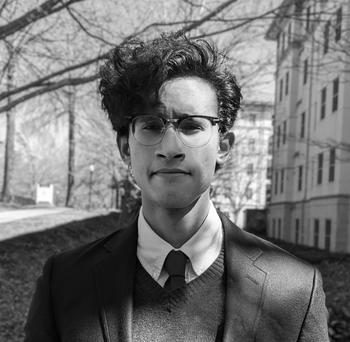Professor loses teaching position after explaining the philosophical concept of using a racial slur
A professor at San Diego State University has been partially relieved of his teaching duties after saying racial slurs to illustrate a philosophical concept.
The professor has stated that he was trying to teach the distinction between mentioning a word and using it.
A Professor of Philosophy & Ethics at San Diego State University (SDSU) has been relieved of some of his teaching duties after saying a racial slur for teaching purposes.
J. Angelo Corlette was relieved from teaching two courses at the California university after he was confronted by a Black student, who was not enrolled in the course about his use of the “N-word,” The San Diego Union-Tribune reports.
San Diego State University is a public institution.
Corlette published a retelling of the account on Apr. 10 for the Union-Tribune. In it, he explained his use of the “N-word” was to illustrate the “‘use-mention’ distinction in philosophy.”
This term, he wrote, is a “foundational concept in determining what language counts as racism — distinguishing between racist language (the “use” of a racial slur, including racist intent) and racial language (the mere “mentioning” of a racial slur, without racist intent).”
An SDSU spokesperson told Campus Reform that “the information shared in the media coverage is not a complete reflection of what has occurred” and that the university “holds in highest regards all protections for academic freedom” but “is limited in what it can share about the matter, as this involves a personnel issue.”
[RELATED: San Diego State researcher runs ‘anti-racist’ day care]
In a comment to the Union-Tribune, SDSU Vice President for Student Affairs and Campus Diversity Luke Wood said that the university “had a number of students who have come forward and who’ve complained about their experience in Professor Corlett’s classes,” and that “[t]his was about actions, not about freedom of expression.”
Since his removal from the classroom, Corlett has pushed back on some of the accusations levied by students and administrators.
In an open letter authored by the professor, Corlett explains his use of the word by stating “the use-mention distinction was of crucial importance to my lecture that day, as was the distinction between racial mention v. racist use … The necessity of a speaker’s/writer’s intent for their meaning is logical and scientific fact about language and its meaning.”
“Nobody has either a legal or an ethical right to not be offended,” Corlett wrote.
In a Mar. 8 letter to SDSU President Adela de la Torre, Foundation for Individual Rights in Education (FIRE) demanded that the university “restore Corlett to his courses immediately” and “publicly reaffirm its commitment to academic freedom.”
The letter claims that the use of racial slurs for teaching purposes is not uncommon, citing a similar instance at Princeton University as well as a court case where the right of an instructor to use offensive language was upheld.
SDSU maintains a freedom of expression policy that touts that freedom as “integral to the mission of the University.”
The text reads:
“Freedom of expression is a tenet of higher education; is integral to the mission of the University and to its students, staff, and faculty;is a central and inviolate freedom to learn and teach; necessary for an educated populace; is a requisite to a free society; is incompatible with the suppression of opinions; is incompatible with prior restraint; encompasses forms of expression other than speech; and defends the expression we abhor as well as the expression we support.”
FIRE Program Officer Sabrina Conza told Campus Reform “SDSU’s reassignment of Professor Corlett violates its First Amendment obligations to respect faculty’s academic freedom and provide them with vital pedagogical leeway to determine how to navigate challenging topics in class.”
[RELATED: SDSU stands by prof after out of context clip spreads on social media]
She also said a lawsuit was possible, stating that “FIRE considers many options when advocating for student and faculty rights on campus, one of the tools being litigation.”
He continued that this freedom “affords me the academic freedom to teach my students as I see fit, provided the material is germane to the subject matter of the course. I do not lose that freedom simply because one or more students or administrative functionaries might find my language disagreeable or even offensive.”
Campus Reform has reached out to every individual and organization named above for comment; this article will be updated accordingly.

